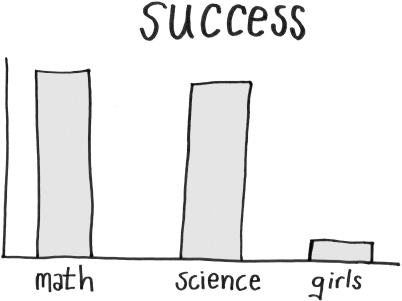The Not-So-Distant Past

When I was twenty-five years old, it came to my attention that I had never had a girlfriend. At the time, I was actually under the impression that I was in a relationship, so as you can imagine, this bit of news came as something of a shock.
I answered the call outside on the sidewalk . You always remember exactly where you were when you found out your girlfriend has a boyfriend who isn’t you.
It was my friend Dan. “Listen, no one else wanted to be the one to tell you this.…”
“All right.”
“I’m really sorry.”
“Okay…”
“Charlotte-has-a-boyfriend.” He blurted it out as one continuous word.
“Right. I mean, I know. I’m her boyfriend.”
There was a pause.
“It’s not you.”
“Oh” was all I managed.
I half expected him to follow up It’s not you with It’s me—that being the official phrase of breakup talks—but it wasn’t him, either. It was some random tool bag she met at her college.
I ended the conversation as quickly as I could. Then I stood there on the sidewalk, as if I was in one of those time-lapse shots in a movie, cars and people whizzing by on all sides of me. How could she do this to me? Why didn’t she at least have the courtesy to call and tell me herself?
In retrospect, we had never actually defined the relationship. She had never actually said she was my girlfriend. I had just sort of, you know, assumed she was. As it turned out, my assumption was completely, totally, painfully wrong.
I had always wondered how it would feel to have a girlfriend—to know that a certain girl liked me and that I liked her, too. But every time I tried to date a girl, something would go wrong. And now there I was, twenty-five years old, and I had still never had a girlfriend.
Maybe the problem was with me, the package. Maybe girls just weren’t attracted to me. Maybe I wasn’t funny enough or confident enough. Or maybe it was that I looked different from everyone else.1 Maybe girls didn’t want to be seen holding hands with me in public, didn’t want to bring a person who looked like me home to meet their parents.
Something had to be wrong with me, though, even if I didn’t know what it was. But I wanted to know. I had to know.
So after my call with Dan, feeling so fed up with my years of searching and failing to find a girlfriend, I decided to conduct a scientific investigation. See, I have always been pretty good at things like math and science, the realms of rational, linear analysis.

I figured, as I stood there on the sidewalk, that I could put my analytical skills to work on my problems with girls. I would go back in time and examine the events of my failed relationships through the lens of graphs and charts. I would then hypothesize and investigate, tracking down the girls I had tried to date and asking them, straight up: What went wrong? Why didn’t you like me? Why did you reject me?
I would compare their answers to my hypotheses and, ultimately, draw a conclusion about the reason no one ever wanted to be my girlfriend. If it was something I could change, like an annoying habit or mannerism, I would change it. If it was some permanent physical characteristic or unalterable aspect of my personality, well, at least I would finally know the truth. And maybe the truth, as they say, would set me free.